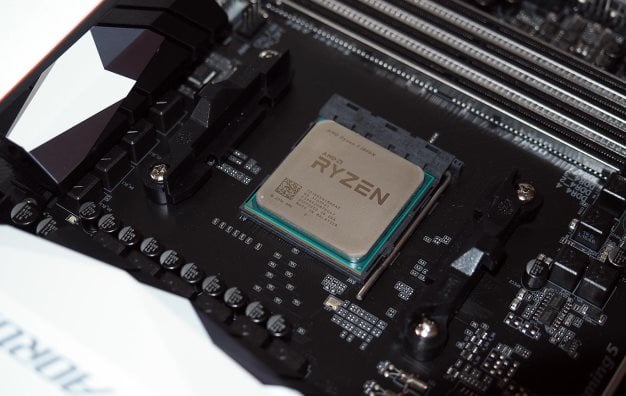AMD 400-Series Promontory Ryzen Chipsets Leaked By PCI-SIG

AMD this year set the foundation for competing in the performance CPU sector with Ryzen, and it will build upon the underlying Zen architecture over the next several years, at least through 2020. Looking ahead to 2018, AMD and its manufacturing partners GlobalFoundries will transition from a 14-nanometer LPP process to 12nm LP, which it will use to launch refreshed Ryzen processors under the codename Pinnacle Ridge. Over at PCI-SIG, the standards body that oversees PCI Express technologies, there is a new Promontory 400 series platform listed, presumably for these new CPUs.
The Promontory platform was first listed at PCI-SIG at the beginning of 2016, but it was used to describe AMD's current generation 300 series, consisting of X370, B350, and A320 chipsets. Assuming AMD uses the same chipset naming scheme, the Promontory 400 series platform will lead to fancy new X470, B470, and A420 motherboards, to be rolled out sometime next year.
Here is a look at the listing:

Source: PCI-SIG
While woefully short on the details, the one interesting tidbit here is the bump to PCI Express 3.0 at 8GT/s. Existing 300 series motherboards provide up to eight PCI Express 2.0 lanes at 5GT/s for hardware, such as graphics cards and NVMe solid state drives. Next generation motherboards will therefore offer users more bandwidth across the PCI Express bus for high-speed devices, though don't expect a big increase in real-world performance.
We also know that Promontory 400 series motherboards will continue to use AMD's AM4 socket, unless AMD decides to make a very unpopular decision at the last minute. Up to this point, AMD has repeatedly gone on record saying that future mainstream processor releases will continue to use the AM4 socket through 2020.
What isn't known is if there will be any chipset shenanigans, as Intel pulled with Coffee Lake. To run a Coffee Lake processor, users have to buy a new Z370-chipset motherboard, as Intel's 8th generation Core CPUs will not work in Z270 motherboards even though they're LGA 1151 chips like Kaby Lake. Likewise, Z370 motherboards do not support Kaby Lake. Intel's reasoning is that the power delivery is different, though motherboard makers are confident they could work around this if their hands weren't tied.
AMD has bragged about its AM4 socket remaining relevant for the next few years, which leads us to believe a simple BIOS update will be all that is required to run a new generation Ryzen processor in a current generation motherboard. However, we will have to wait and see.

